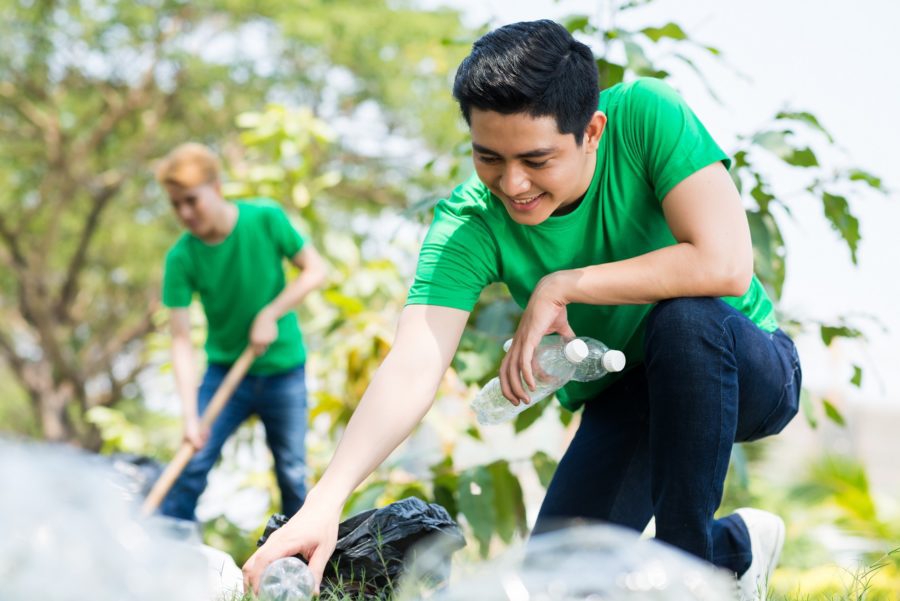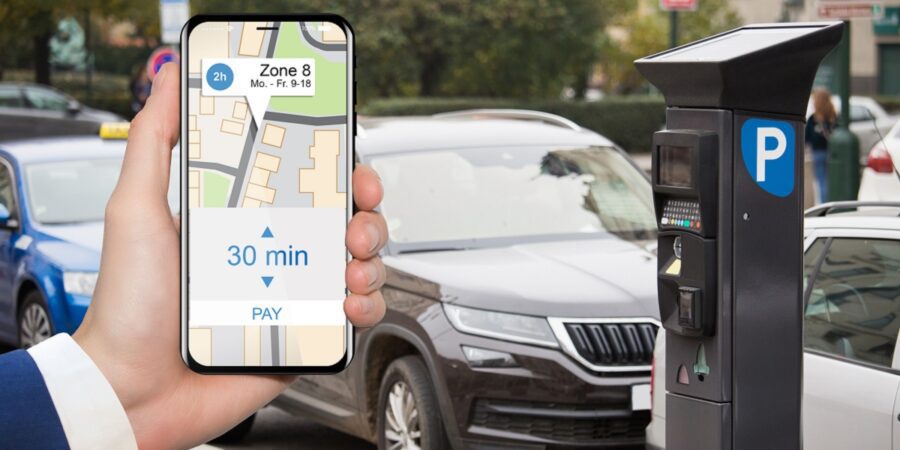
Our Blog
A Guide to Campus Sustainability
5 Min Read
Written by: Parcel Pending
Taking the lead to help the planet is good for all of us. With the concerns around climate change and the impacts of our behavior on our environment, it is no surprise that learning institutions around the country are championing sustainability and environmental stewardship.
Colleges and universities are turning principles into practice, implementing an array of environmentally friendly programs that makes life better for the college students and staff that learn, live, and work on campus while also inspiring change in the wider community.
Organizations like the Association for the Advancement of Sustainability in Higher Education (AASHE) are at the forefront of encouraging students to think green. Campus sustainability month is a nationwide program that encourages college students, staff, and faculty to be more environmentally conscious and active in implementing initiatives from campus recycling waste reduction to a more out-of-the-box sustainability project that is good for our planet.1
Here are some ways that campuses across the country can become more sustainable and promote sustainable environmental practices.
Set Up Recycling Stations
One of the simplest ways to make your campus more sustainable is to recycle as much as possible.2 Recycling waste reduction stations offer an easy way for students, staff, and faculty to make a positive environmental impact and keep things tidy at the same time.
Ways to implement this include:
- Creating single-stream recycling areas for students and faculty to use and place recycling bins in high-traffic areas on campus grounds and buildings.
- Partnering with local recyclers to handle other materials such as shredded paper waste, cardboard, and oversized items like used or damaged furniture.
Organize Donation or Secondhand Markets
Giving a second life to used or lightly damaged goods is an excellent way to reuse, buy local, and promote sustainability efforts (such as zero waste practices). This helps slow down the amount of waste that makes its way to landfill sites and garbage dumps and is also a great way to foster community engagement.2
Ways to implement this include:
- Hosting donation or secondhand markets when students are moving out at the end of the semester or the end of the school year.
- Encouraging students to host closet swaps or secondhand sales on-campus.
- Integrating recycling events into community participation programs and team building campus initiatives.
Start a Bike Rental Program
Bike share and on-campus bike rental programs offer a greener alternative to driving. Biking to and from campus has a much lower environmental impact than driving a car and is a great way for campuses to promote exercise and a healthy lifestyle.4
Ways to implement this include:
- Hosting public awareness events to encourage students to ditch their cars and use a bike.
- Considering subsidizing the cost of locks or bike racks for students who bring their own bikes if starting a campus-based bike rental program is out of budget.
Create a Campus Community Garden
Dynamic green spaces, like community gardens, bring students together and encourage awareness while literally putting food on the table!
Ways to implement this include:
- Creating a campus garden where students can grow their own organic produce. Students at the University of Houston, for example, used their community garden to educate campus and community members about sustainable living and agriculture.5
- Considering donating extra produce to food pantries or low-income students who have limited access to fresh fruit and vegetables.
Create a Composting Program
Establish a program to use food waste to create compost. Recycling food scraps in this way produces a renewable resource that can nourish green spaces and gardens on campus. Communities that nurture and care for green spaces are more pleasant places to live and contribute to making a healthy planet.
Ways to implement this include:
- Minimizing the amount of food waste going to landfills by starting a compost program.
- Augmenting campus sustainability efforts by encouraging the use of biodegradable food containers and utensils in on-campus cafeterias and coffee shops.
Counter the Carbon Footprint of Campus Offices
Campus sustainability efforts and sustainability tracking should be integrated into campus culture as a positive example to encourage more carbon neutral behavior.
Ways to implement this include:
- Reevaluating practices for new opportunities to innovate with emerging technologies in higher education and reduce carbon emissions. For example, reassess paper, print, mail, and parcel management operations on campus.5 Consider reducing delivery emissions in campus office environments by centralizing mail and package deliveries to a smart electronic locker.
- Updating existing university HVAC systems to more environmentally friendly. For example, Wesleyan College in Connecticut installed an innovative heating system in residence halls that also generates free electricity.7
Adopt Long-Term Campus Sustainability Goals
Campus environmental sustainability involves a significant shift in practices for an institutions’ staff, students and faculty. Providing them with the tools, knowledge, and motivation to adopt behavioral changes that promote sustainability should be part of a climate commitment and an essential element in a school’s long term strategic plan.8
Ways to implement this include:
- Articulating sustainability objectives on an annual basis rather than broad, loosely focused goals. McKinsey researchers recommend focusing on specific sustainability topics (e.g., implementing sustainable college campus amenities) that are important to your institution and that create a measurable impact.9
- Referring to organizations such as AASHE for more ideas on how to promote, educate and implement campus sustainability events and programs.
The Importance of Campus Sustainability Initiatives
More than 400 institutions are currently participating in the American College & University Presidents’ Climate Commitment. But this represents just 10% of the almost 4,000 U.S. degree-granting postsecondary institutions across the country.
Meanwhile, 90% of respondents to the 2022 Deloitte Global Millennial and Gen Z Survey placed climate change among their top three most important societal concerns. According to the report, 73% of Millennials and 75% of Gen Zs believe that we are at a critical point when it comes to responding to climate change.10
Prioritizing campus sustainability sends positive signals to current and potential students. Making a meaningful climate commitment through campus initiatives, improved practices, and environmentally thoughtful choices is simply good for the planet. It also encourages environmental stewardship and thoughtful use of critical natural resources that sets a positive example to the rest of the community and to the generations who will follow.
To find out more about how our parcel locker solutions can help you improve campus sustainability, contact a Parcel Pending representative today.
Sources:
- Behm, Jon. Is Your Campus Focused on Sustainability? www.dumpsters.com. November 2, 2022. https://www.dumpsters.com/blog/campus-sustainability-month
- Top Universities. 8 Tips for a More Sustainable Campus. www.topuniversities.com. March 14, 2021 https://www.topuniversities.com/blog/8-tips-more-sustainable-campus
- Ibid
- Behm, Jon. Is Your Campus Focused on Sustainability? www.dumpsters.com. November 2, 2022. https://www.dumpsters.com/blog/campus-sustainability-month
- Ibid
- Higher Ed Dive. Good for the planet, good for the bottom line: Advancing green practices in print operations. www.highereddive.com. January 18, 2022. https://www.highereddive.com/spons/good-for-the-planet-good-for-the-bottom-line-advancing-green-practices-in/611767/
- Jones, Matt. Wesleyan University Installs Boiler that Converts Lost Heat into Electricity. www.spaces4learning.com. November 10, 2022. https://spaces4learning.com/articles/2022/11/10/ wesleyan-university-boiler-free-electricity.aspx
- AASHE. Campus Sustainability Hub. www.hub.aashe.org. https://hub.aashe.org/browse/topics/campus-engagement/
- De Smet, Aron, Wenting Gao, et al.. Organizing for sustainability success: Where, and how, leaders can start. www.mckinsey.com. August 10, 2021. https://www.mckinsey.com/capabilities/sustainability/our-insights/organizing-for-sustainability-success-where-and-how-leaders-can-start
- Deloitte Consulting. Striving for balance, advocating for change. The Deloitte Global 2022 GenZ and Millennial Survey. www.deloitte.com. https://www2.deloitte.com/kh/en/pages/about-deloitte/articles/deloitte-gen-z-millennial-survey-reveals-two-generations-striving-for-balance-and-advocating-for-change.html





